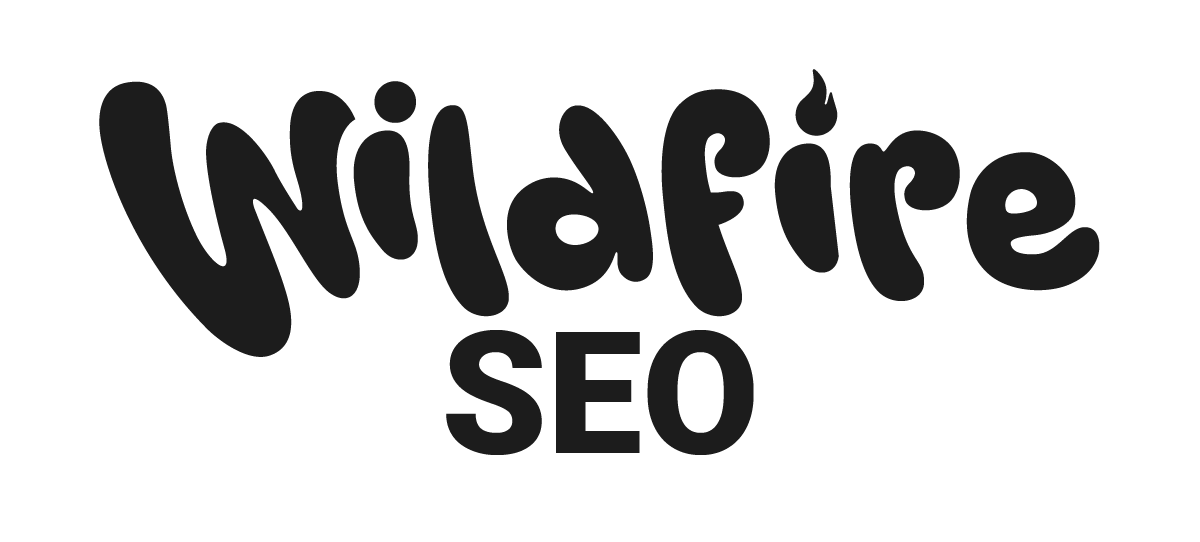
The Evolving Role of SEO Agencies in the Age of AI
The landscape of search engine optimisation is undergoing its most profound transformation since the shift to mobile browsing, directly impacting seo agencies in South Africa. For years, the goal was securing a position among the “10 blue links” to earn a click. However, the rise of generative artificial intelligence (AI), exemplified by features like Search Generative Experience (SGE), which provides direct, synthesised answers, has redefined visibility.
Success isn’t just measured by rank anymore; it’s measured by being the trusted source cited within the AI-generated answer. For SEO agencies in South Africa, the question is simple: are your strategies adapting to this new reality? The modern agency must shed outdated motivations and embrace a role as a strategic, technical, and authority-building partner.
The use of both SEO and AEO: A Motivated Response to Zero-Click Search
The transition doesn’t diminish the foundational value of SEO, which still provides the necessary content quality, authority, and technical structure. Instead, AEO/GEO represent advanced specialisations:
- SEO’s Core Goal: To achieve high rankings, ensuring a brand’s content is the most authoritative and relevant option available, thereby maximising the opportunity for a click.
- AEO/GEO’s Strategic Goal: To ensure the brand’s content is the chosen and displayed answer when a user doesn’t click, thereby securing visibility and expertise citation even in a zero-click result.
The advent of AI Overviews, however, means the search engine often consumes the answer directly from the source and presents it to the user, eliminating the need for a click. This is a dramatic change in user behaviour. Data shows that zero-click searches have grown by about 11% in recent periods, illustrating a growing user preference for instant, direct answers. Furthermore, the AI-powered summaries can take up to 48% of the mobile screen real estate, physically pushing the traditional clickable results out of immediate sight.
The strategic motivation for GEO/AEO is therefore to maintain brand visibility and trust even without the click. The goal shifts from earning the visit to earning the citation. The guidance from search engines, such as Bing’s emphasis on writing in “chunks,” highlights that content must be broken into usable pieces so AI models can easily parse, rank, and assemble the information.
This evolution of optimisation, which many expert commentators view as simply an advancement of core SEO principles, is driven by the necessity of adapting to these new algorithmic mechanics. Successfully adapting to this is now a core differentiator for SEO agencies in South Africa.
Prioritising E-E-A-T: An Assurance of Quality to the Machine
The motivation behind the intensified focus on the E-E-A-T framework (Experience, Expertise, Authoritativeness, and Trustworthiness) is the AI’s inherent need for credibility. Large language models are susceptible to “hallucinations” or generating plausible but false information. The search engine’s motivation, therefore, is to heavily reward sources that can provide an assurance of verifiable, high-quality information to mitigate these risks.
The nuances here are crucial. The addition of the “Experience” factor is motivated by the desire to move beyond theoretical knowledge. For a product review, for instance, the AI must confirm the author has genuinely used the product. This creates a difficult barrier for generic, AI-generated content to overcome, as it cannot fabricate genuine, first-hand experience. Furthermore, Trustworthiness is explicitly deemed the most important member of the E-E-A-T family because its motivation is risk mitigation. For “Your Money or Your Life” (YMYL) topics (like health or finance), the risk of providing a harmful answer is too high, leading the AI to filter out untrustworthy sources.
Research indicates that 52% of AI Overview sources come from the top 10 traditional search results, confirming that the underlying, quality-driven effort to establish E-E-A-T remains the foundation for all modern visibility. The agency’s role, particularly for forward-thinking SEO agencies in South Africa, is motivated by the need to establish their clients as the safest, most reliable choice for the AI, often involving rigorous fact-checking and comprehensive author attribution pages.
Automation of Foundational SEO Tasks: Freeing the Human for Strategy
The use of AI tools to assist in tasks like automated technical audits, keyword clustering, and metadata generation isn’t motivated by a desire to simply cut costs. Its primary motivation is operational necessity and efficiency liberation.
For years, many agencies spent a disproportionate amount of time on repetitive, high-volume tasks that, while necessary, didn’t require high-level strategic thinking. AI agents are now capable of executing Autonomous Technical SEO Audits, with reports suggesting that over 52% of SEO professionals who use AI for on-page tasks see improvements. This is a clear indicator that the technology is an effective “force multiplier.”
The types of repetitive tasks now being automated include:
- Initial content drafting and outlining.
- Large-scale technical audits, such as finding broken links or crawl errors.
- Automated keyword clustering and topic ideation.
- Bulk generation of meta descriptions and title tags.
This automation is motivated by the need to reallocate scarce human capital to areas where it adds the greatest, non-replicable value. By automating the tactical “grunt work,” SEO agencies in South Africa free their expert staff to focus on high-level strategic tasks, client education, and the nuanced, creative decisions that AI cannot yet master. This transformation solidifies the tool as a means to an end: transforming the agency model from a tactical implementation shop into a strategic consultancy.
The Rise of High-Level Strategy and Consultation: The Need for Nuanced Interpretation
With AI handling the “how-to,” the agency’s motivation shifts to “why” and “what next.” The modern agency’s value proposition is driven by the fact that AI-generated data is abundant, but human, nuanced interpretation is not.
The need for high-level strategy is motivated by several factors:
- Interpreting the New Metrics: When a client sees a drop in organic click-through-rate (CTR) due to SGE, they panic. The agency’s motivation is to be the calm, informed expert who can differentiate between a loss of visibility and a drop in CTR caused by the AI fulfilling the query directly. New metrics, such as a “Prompt Visibility Index,” must be tracked and reported to show true brand exposure in the generative results.
- Preventing Genericism: As AI makes content creation easier, the web risks being flooded with generic, undifferentiated content. The agency’s strategic motivation is to ensure the client’s brand retains a unique, human-led voice and perspective that stands out from the AI-generated crowd, as true niche marketing and long-term content roadmaps are strategies AI cannot yet master.
The most successful SEO agencies in South Africa realise that their insights are now valuable beyond the marketing department. They use AI-analysed data to inform complex business decisions, transforming their role from an SEO vendor to a core strategic business partner.
Deepening Technical SEO and Data Integration: The Pursuit of the Perfect Signal
The motivation for deepening the focus on technical SEO and data integration stems from the algorithmic requirement for a perfect signal.
The AI models need the web to be fast, stable, and perfectly labelled to function optimally. Therefore:
- Technical Perfection: The intense focus on Core Web Vitals and site speed is motivated by the fact that AI-first indexing prioritises efficiency. A slow, poorly coded website is a messy signal for the AI to process. Industry experts note that a technically sound website provides the clean architecture and performance metrics that AI systems use to evaluate content quality.
- Advanced Data Structure: The use of structured data (Schema Markup) is motivated by the necessity to explicitly define meaning for the machine. In an AI world, agencies are moving technical checks into the development (CI/CD) pipeline to ensure proactive compliance.
- Holistic Data Integration: The push to integrate SEO, paid media, and sales data is motivated by the need for accurate attribution. The goal is to prove that efforts don’t just drive traffic; they drive revenue. By connecting disparate data sources, SEO agencies in South Africa provide a holistic view of the customer journey, moving SEO out of a silo and aligning it with tangible commercial outcomes.
Wildfire SEO: We Got You Covered
Wildfire SEO is a highly experienced, multi-generational SEO agency with over 17 years in the industry, based in Pretoria, Johannesburg, and Cape Town. We offer an all-in-one SEO solution, specialising in strategic services like On-Page SEO, Off-Page SEO, and Pay Per Click Optimisation to drive high-value traffic and lead generation. Our expertise is supported by thorough Competitor & Keyword Research and Market Analysis. The multiskilled team is proficient in web development, marketing, and in-house content creation, serving a diverse clientele from medium to large businesses, multinational corporations, and governmental organisations across Africa, the UK, and Europe.
The role of SEO agencies in South Africa has fundamentally matured. The transformation isn’t an existential threat, but a maturation of the discipline. AI has successfully automated the tactical, forcing human experts to focus on the truly valuable: building unparalleled brand authority (E-E-A-T) and ensuring technical excellence to secure that all-important citation in the new generative ecosystem (GEO/AEO).
The future of digital visibility belongs to the strategic, E-E-A-T-focused agency that operates as a business partner. They are defined not by the number of keywords they rank for, but by the business intelligence they deliver and the trust they build. If you’re looking to future-proof your visibility and transition from chasing clicks to becoming the cited source, we encourage you to contact Wildfire SEO to discuss a generative-first strategy tailored for your brand.



